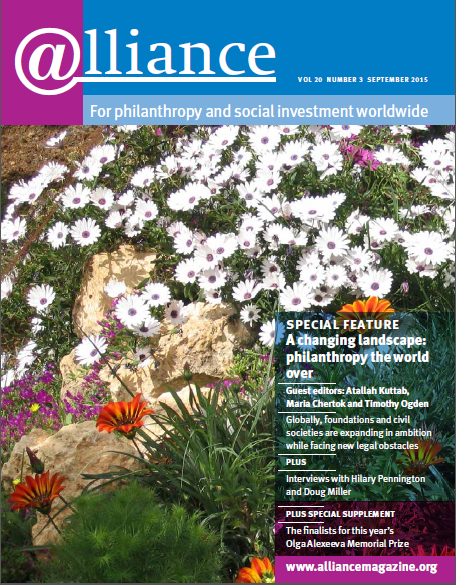CEOs are stepping up on societal issues. Companies are increasingly linking long-term, multi-stakeholder assessments of their corporate citizenry to long-term financial performance, according to studies. The business case for corporate giving is strong; government regulations also influence giving. Companies that are strategic about their giving’s business case ensure requirements will add value for all.
Environmental, social and governance (ESG) governmental mandates for corporations take different forms, illustrated below:
Action and disclosure requirements for most companies
India
The Indian Companies Act passed in late 2013 includes a mandate that companies of a certain size allocate 2 per cent of profits annually to Corporate Social Responsibility (CSR). The related requirements include a board-approved CSR policy and public reporting on CSR.
After the 2014 election, the government released a general circular that stated:
- The Act’s list of approved CSR focus areas, such as poverty or gender equality, can be ‘interpreted liberally’. Companies are allowed to include CSR policies not listed in regulations, such as disaster response.
- Contributions to a trust, society, or non-profit company will qualify, so companies can transfer contributions to a corporate foundation.

The LafargeHolcim Foundation supports sustainable construction through a global competition for urban designs, such as this 2012 award‑winning plan for the urban remediation and civic infrastructure hub in a high‑risk zone of Sao Paulo, Brazil.
Mauritius
Mauritius requires that companies devote 2 per cent of chargeable income to CSR. CSR can include poverty alleviation, education and services for relief of sickness.
Selective action and disclosure requirements
Indonesia
Indonesia is headquarters to nine Forbes Global 2000 companies. Regulation No. 47 of the 2007 Company Law obliges certain companies working in natural resource development to have a CSR programme in their annual plan. The CSR programme must be approved by the company’s shareholders and must be included in the company’s annual report.
Requirements for action alone
Brazil
Brazil has a vibrant CSR community with organizations such as Comunitas, GIFE and Ethos. Comunitas has worked with CECP to develop reporting methods, and publishes an annual report called Benchmarking do Investimento Social Corporativo (BISC). Giving is mandated by the national government in connection with certain licences, permits, or other government approvals. Mandatory contributions make up approximately 47 per cent of total societal investment, according to the BISC. Reporting is not yet standardized enough to give more than an estimate.
Disclosure requirements
Europe
A directive passed in April 2014 clarifies corporate reporting requirements, and allows national governments two years to pass and implement them. Companies use reporting standards in the ISO 26000, the United Nations Global Compact, and the Global Reporting Initiative to comply with the directive. The directive represents progress on a multi-year effort that has not yet reached the finish line.
South Africa
South Africa is a few years into implementing legislation that applies the International Integrated Reporting Council (IIRC) reporting standards. Listed companies in South Africa must produce an integrated report on an ‘apply or explain’ basis. The Broad-Based Black Economic Empowerment law also includes giving provisions spelled out in Halima Mahomed’s article on corporate philanthropy in South Africa.
Box to tick, or long-term good?
Companies may question whether government mandates are an emerging trend or fading approach. ESG practitioners may question whether regulation leads to true value creation or becomes just another box to tick. Those questions will be answered case-by-case and year-by-year.
Carmen Perez is director of evaluation and data insights for CECP. Email cperez@cecp.co




Comments (0)